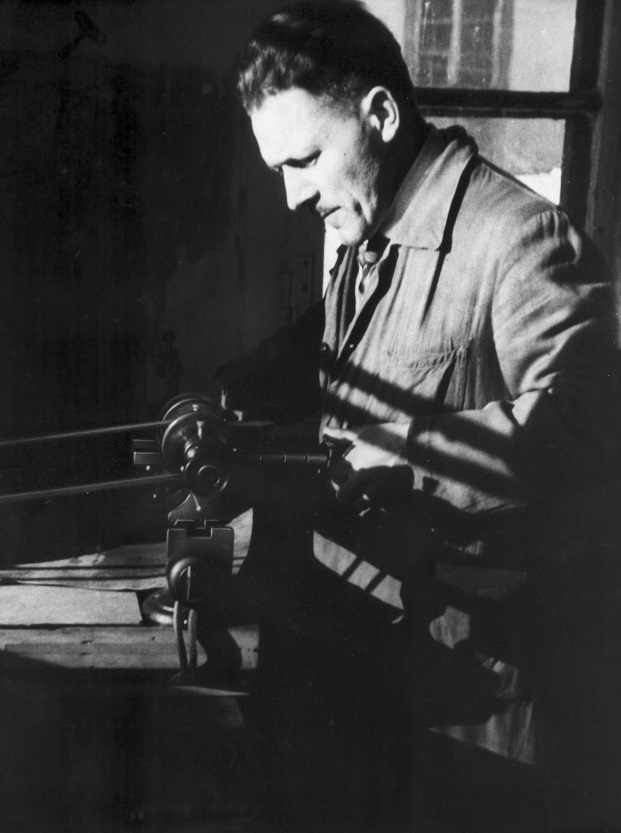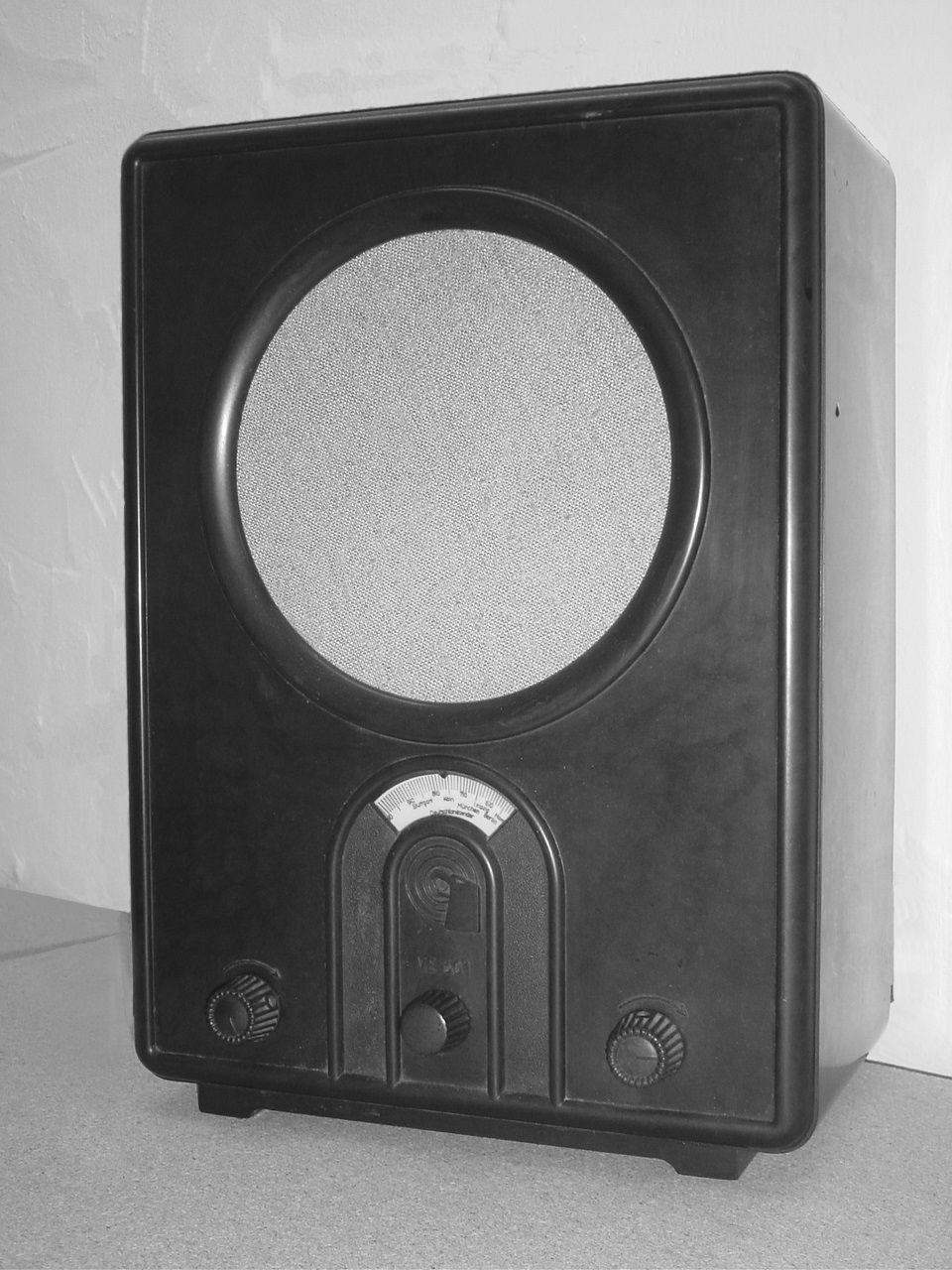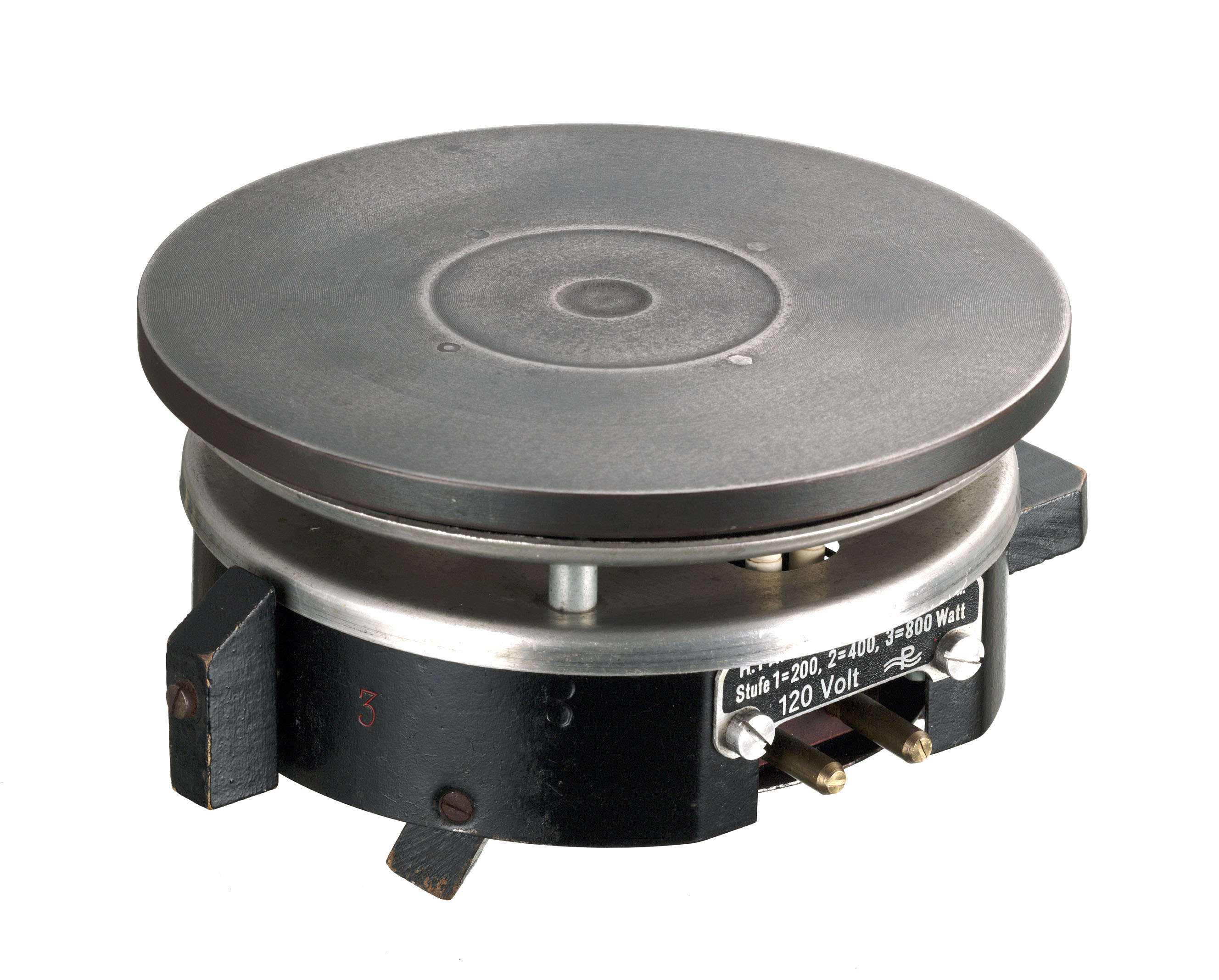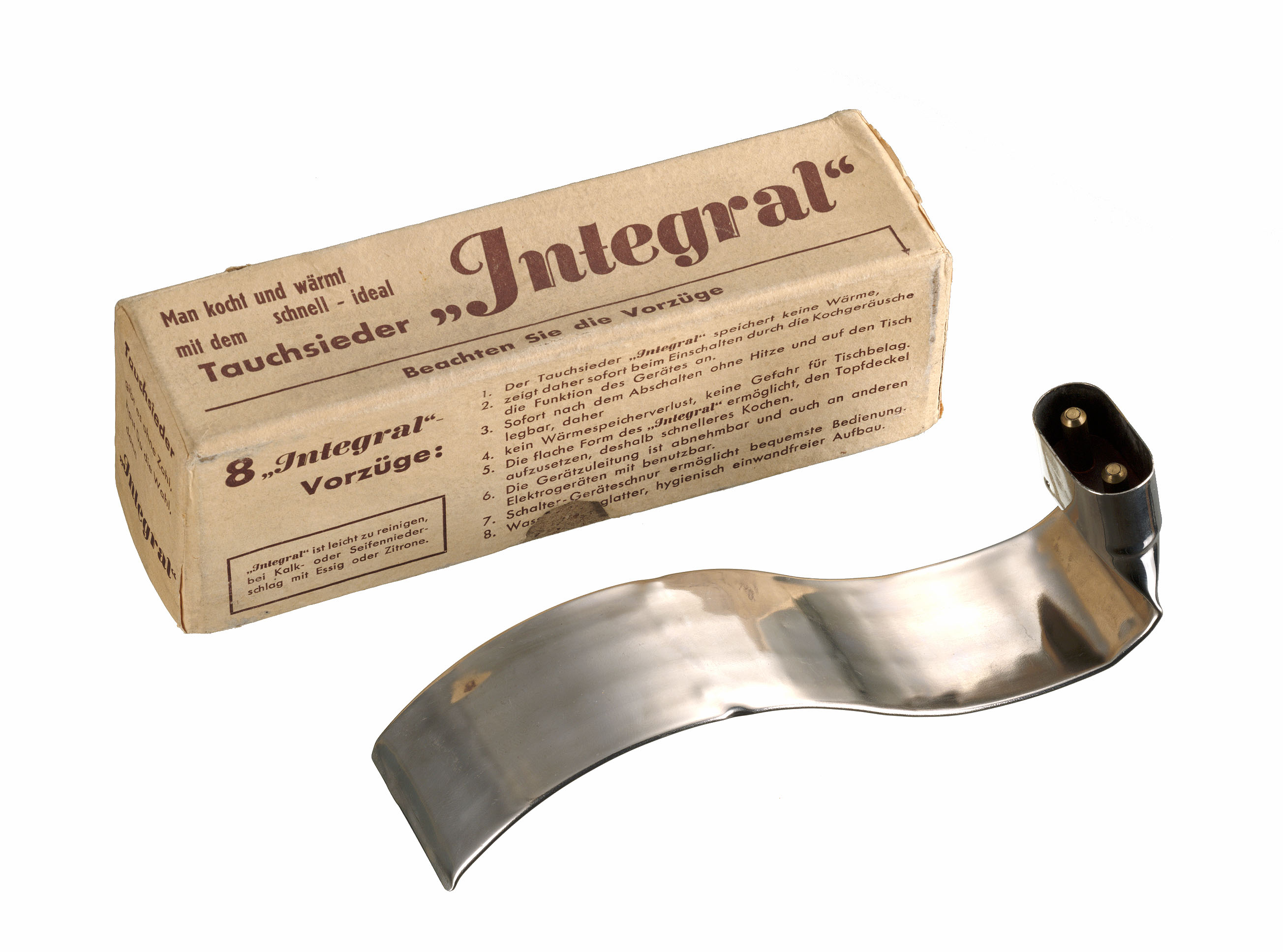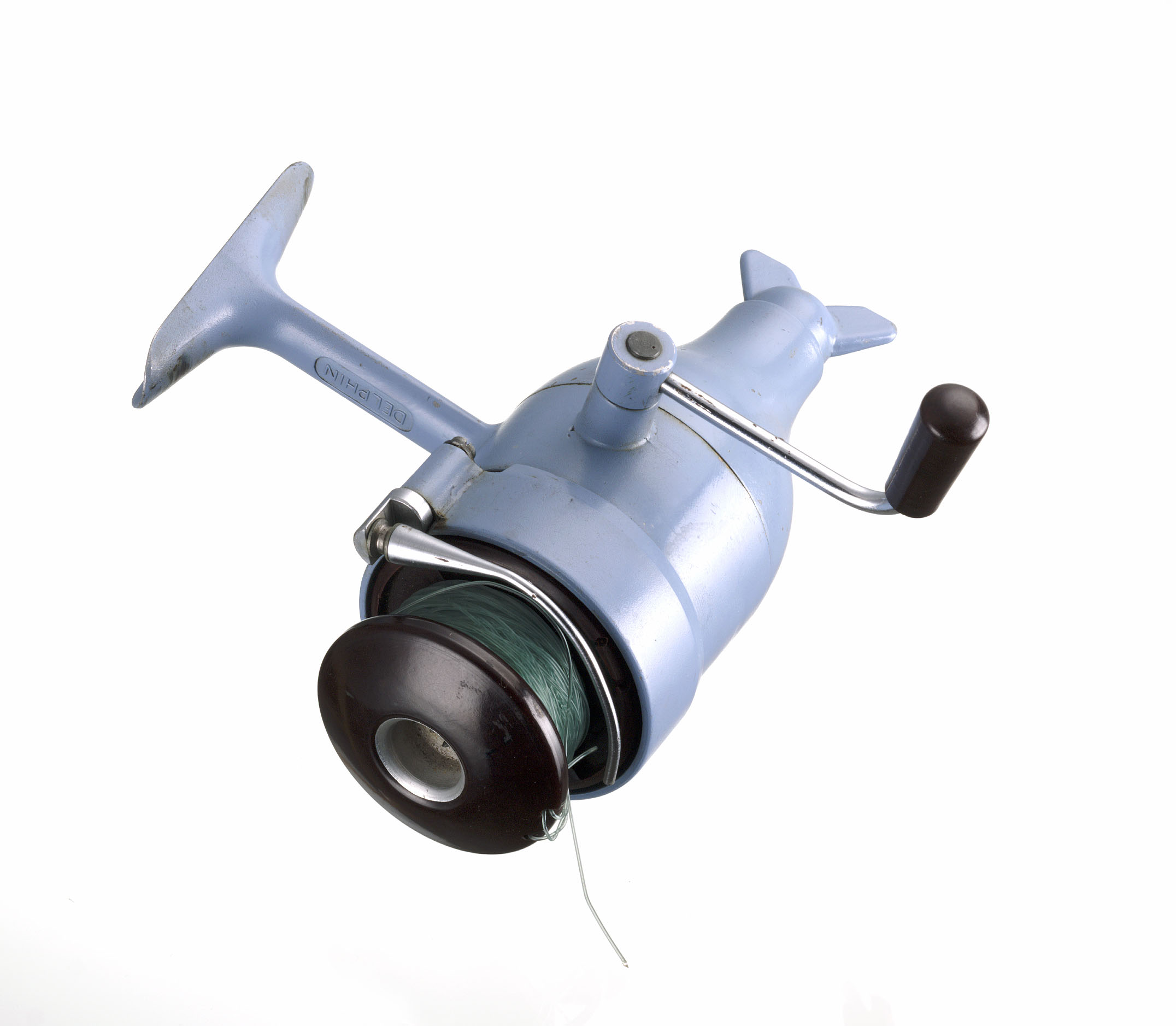Freelance Engineer – A risky venture during a difficult time
–
Employment status as a restriction for creativity
Despite all the comfort and financial security life as an employee offers, Hermann Papst feels tied up and confined. He regularly draws and designs until late at night and understandably reports to his duty a bit later. This collides with the general time schemes of the factory, but he needs space and autonomy when it comes to his research and development.
–
Finally independant
In 1937 Hermann Papst leaves DUAL and founds his own Engineering-Office for the development of new designs. First the office is located in Friedrichstreet in the house of the carpentry Heß, a little later it is moved to Hauptstraße 20 though (today “Löwengasse”). This is where he draws, designs and does his experiments accompanied in the beginning only by a secretary, later on occasion helpers and precision-mechanics join by the hour as well as his sons while growing up. The family, brothers- and sisters-in ‘law are concerned about this step into an uncertain enterprise from a secure employment in a prospering company.
Hermann Papst is not only theoretician and designer,
he also knows how to test his ideas in his workshop.
In this picture he is working at the lathe around 1940.
–
Hermann Papst surely never regretted his decision to become an enterpreneur. Still the first years bear not only financial risks, but also hard work and challenges. He is exempt from military duties, dues to potentially war relevant development work, so he is able to pursue his technical and inventing tasks.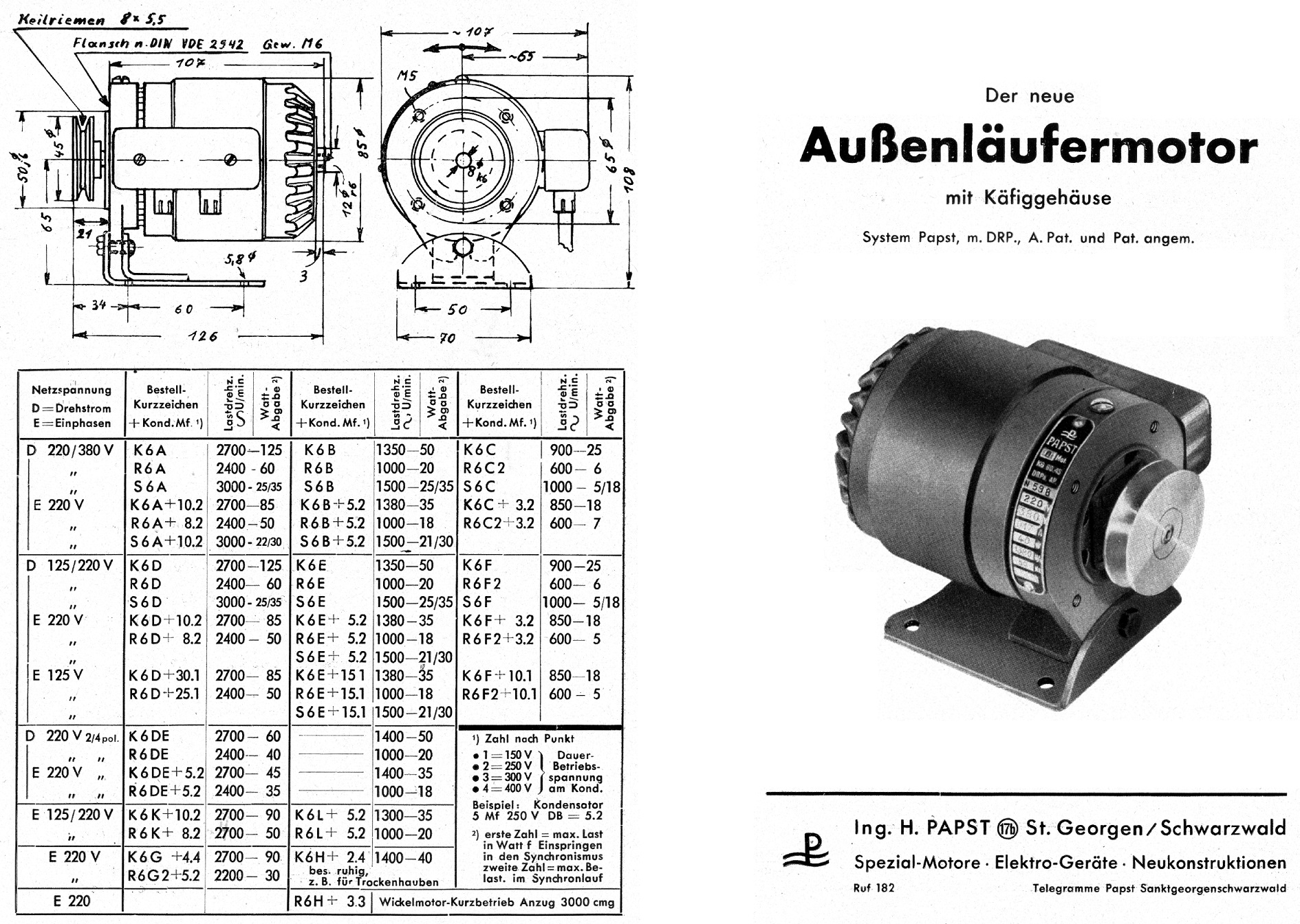
First advertisement brochure for the pioneering external rotor motor
–
–
Breakthrough of the broadcasting-industry
An important financial basis for Hermann Papst and his large family is the broadcasting-industry, which receives immense government funding during the Third Reich for political reasons. The development from the detector to the tube radio leads to a quality-breakthrough. Hermann Papst follows and accompanies the development, innovatively, technically and experimentally.
The sale of the “Volksempfänger” is an important element of the broadcasting’ politics of Hitler and Goebbels.
The mass-production of radios receivers leads to a growth of the
respective industry of the German Reich.
–
The royalties generated by the production of the radio (all in all about 10 million devices with a licensed speaker design) create a certain security in terms of finances for the venturesome engineer. Once, when receiving a large payment in 1943 he gathers all his children and his wife in their bedroom to pray the Lord’s prayer, out of gratitude for the financial blessing, one of his sons reports.
–
Need is the mother of invention- Black-Market business
The German Reichsmark is not worth much after the war so trading is a useful alternative. A popular device that can be traded for food and scarce goods are electric cooking plates. Even small households in the countryside are interested in those modern, long lasting cooking plates. The farmers women pay with the “golden currency” of that time: butter, eggs, smoked meat, potatoes or grain. Hermann Papst starts producing those small electric cooking plates with the help of several employees. He also works on immersion heaters, which are sold under the name “Integral”.
(three stage) Small electric stove
–
Immersion heater “Integral”
–
A third innovative product of Hermann Papst’s workshop is the fishing tackle “Delphin”.
It includes a throw roll with an automatically, switchable two-speed gearbox.
Fishing throw-roll Delphin
–
Heat mats out of wood are another inexpensive trading product, which the workshop manufactures in high numbers. By coincidence Hermann Papst discovers an advertisement in 1945, by a chemical manufacturer, who offers to sell a lot of wooden barrels filled with extra, nitric sodia for Reichsmark. He believes that the chemical is useful as a fertilizer and buys several barrels. After proving his assumption right with a few tests, he sells the sodia carbonate to local famers.
Through selling heat mats, immersion heaters, fishing tackles, small electric stoves and fertilizer, the family keeps afloat the difficult time after the war.
The currency reform on July 21, in 1948 brings an end to this tough chapter of German history. Every German citizen receives a start capital of 40 DM and a 10th of their Reichsmark savings in the new currency.

